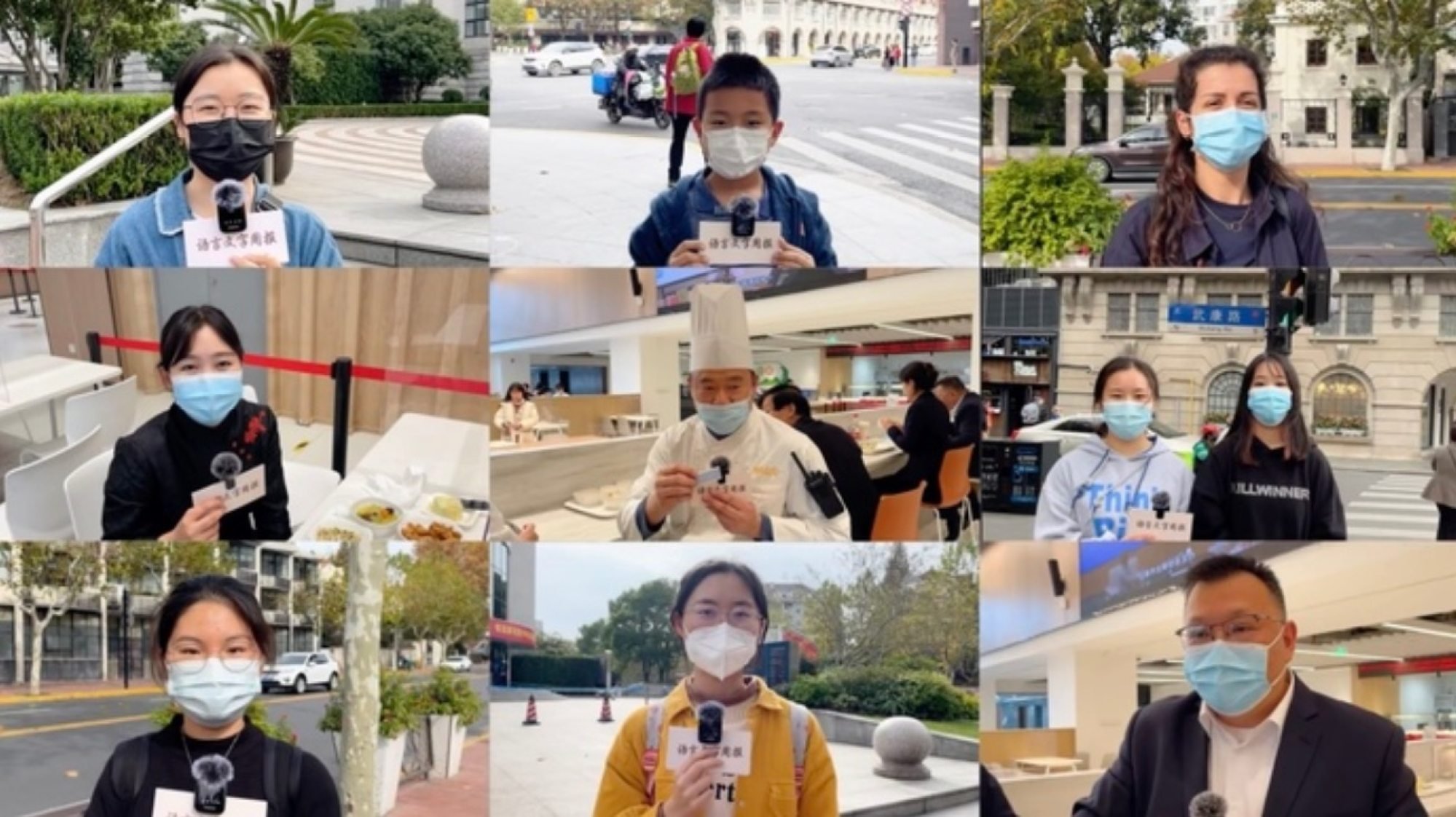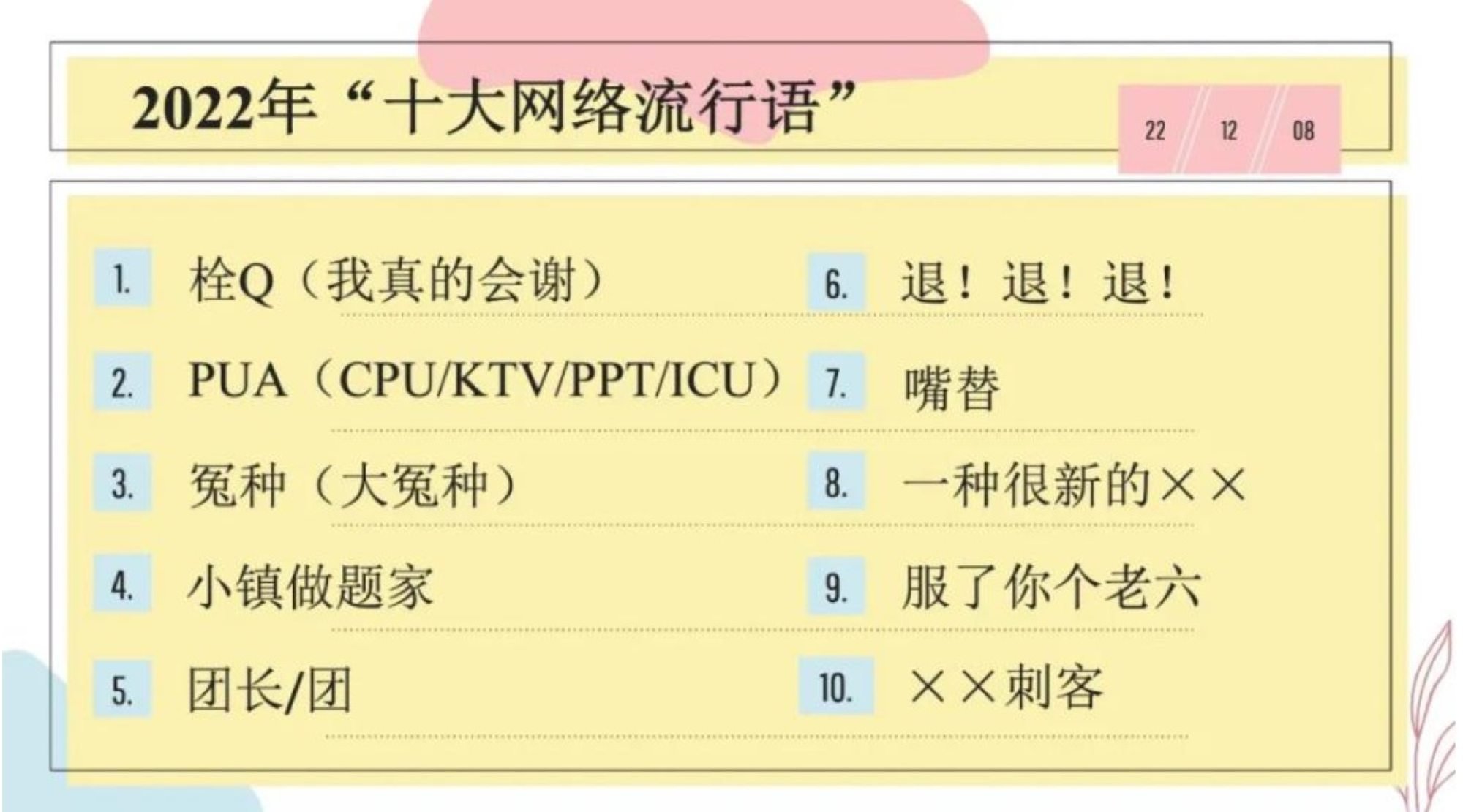A list of 10 most popular internet terms used in China in 2022 has been released by Shanghai Language and Character Weekly.
The most-used top 10 phrases were chosen from a candidate pool of 800 words or slang, according to Xinmin Evening News.
“Popular terms are like social dialects. They are widely used in society but they have not been included in the standard language,” Professor Chen Changlai, from Shanghai Normal University, was quoted as saying.
Do you have questions about the biggest topics and trends from around the world? Get the answers with SCMP Knowledge, our new platform of curated content with explainers, FAQs, analyses and infographics brought to you by our award-winning team.
He added that popular terms are a reflection of society, how people live their lives and the overall mentality of the public.

“Some of this year’s catchwords demonstrate young people’s anxiety and to some extent are the way they express their emotions,” said Shi Menghui, a researcher from Institute of Modern Languages and Linguistics at Fudan University.
Below are the top 10:
1 Shuan Q: “thank you”
The Mandarin pronunciation of Shuan Q is similar to that of English for thank you. As well as being used to show gratitude, the term is often adopted by Chinese internet users when they feel speechless or fed up.
2 CPU/KTV/PPT/ICU: replacement for PUA
These English abbreviations are used as a substitute for another English term, PUA, or online pick-up artist, which describes how such online abusers sow self-doubt and confusion in the minds of their victims. Once, the abbreviation CPU was mistakenly used instead of PUA, sparking a craze to use other well-known abbreviations instead of PUA.
3 Yuan Zhong or Da Yuan Zhong: silly or unlucky guy
This is a colloquial term in northeastern China which originally described people who were in low spirits as a result of being wrongly treated. After being used by vloggers from northeastern China to mock themselves, the term became viral. Netizens use it to describe themselves or their close friends when they feel something is funny but also feel a bit sorry about it.
4 Xiao Zhen Zuo Ti Jia: specialist in doing academic tests from small towns
This refers to graduates from China’s top universities from small towns or cities who got high scores in the gruelling gao kao, or university entrance examination. Usually, the term is used in a self-deprecating manner, often to ridicule oneself. It implies they are only good at doing exams.

5 Tuan Zhang/Tuan: buying group director/buying group
During the Covid-19 lockdowns in many cities, residents relied on their communities’ buying groups to purchase daily essentials online. As a result, such buying group leaders have been dubbed “civilian heroes”.
6 Tui Tui Tui: retreat or get out
The verbal expression comes from an old woman who, in a viral video, posed a strange superstitious gesture and shouted “tui tui tui” when quarrelling with others. Amused by her behaviour, netizens imitated her voicing the term while hoping bad things, like the pandemic or bad luck, would stop.
7 Zui Ti: mouth replace
This refers to those who speak out on behalf of the wider public, it also indicates agreement or applause for their outspokenness.
8 Yi Zhong Hen Xin De XX: a very new kind of XX
This term first appeared in the comment sections of music platforms and is used to describe a new and difficult-to-understand type of music. It can also be used as a euphemism for criticism.
9 Fu Le Ni Ge Lao Liu: I admire you Lao Liu
Originating as a way of describing cheats who play video games, this has evolved into a popular, everyday term for those who win using unconventional or devious methods.
10 XX Ci Ke: XX assassinator
This was initially used to describe the “killer” prices people had to pay for ice cream at a shop where the price tags were partially hidden, i.e., the consumer was “assassinated” by the hidden price. It has since been adopted for expensive fruit.
More from South China Morning Post:
- ‘Everyone is worthy of love’: romance blossoms between Chinese firefighter and woman with artificial leg he rescued, lighting up the internet
- ‘I will wait for him to wake up’: young wife of Chinese man in a coma shows undying love for husband by selling dumplings to meet medical costs
- ‘Adorable’ farm boy, 5, who tends goats, cooks and does repairs trends in China after surprising many online with his independence
- ‘Honest grandma’, 92, repays US$3 million in debt in 10 years after refusing to declare bankruptcy wins ‘most beautiful’ citizen award in China
- ‘Don’t put fishing before family’: Chinese wife files for divorce after floundering 10-year marriage is wrecked by husband’s addiction to angling
For the latest news from the South China Morning Post download our mobile app. Copyright 2022.





